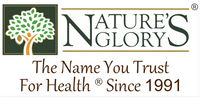You might be thinking that all soaps are equal because they serve only one purpose, which is to clean your face, hands, and body. But on the contrary, they’re not. Some soaps are bad for the skin, while others are. In fact, commercial soaps contain chemical ingredients that serve secondary purposes such as giving fragrance, preserving soap, or forming a lather. When these chemical ingredients come in contact with your skin, they may lead to harmful effects.
So, to protect your health and overall wellbeing, here are some of the most harmful ingredients you need to avoid when shopping for soap.
Parabens
These are chemicals used to preserve the soap and prevent the growth of bacteria, mould, and yeast in beauty products. Although they’re effective in that sense, they are also dangerous to your health.
Parabens contain oestrogen-like qualities that are greatly associated with breast cancer and tumours. When absorbed into your skin, parabens can increase oestrogen activity in your body. As a result, these chemicals trigger elevated division amongst breast cells, which can then lead to the development of breast cancer.
Formaldehyde
This is another preservative commonly found in cosmetic products to prevent bacteria build-up. However, the International Agency for Research on Carcinogens (IARC) has deemed this chemical a carcinogen linked to cancer-related health issues. In addition, it can also damage the immune system and cause allergic reactions to the skin. That said, be mindful of this ingredient when shopping for body soap, shampoos, make-up, and cleansers.
Synthetic Fragrances
You might have encountered “fragrances” in the ingredients list when shopping for your soaps. But do you understand what it entails?
Generally, this term is used by commercial soap manufacturing companies to protect their so-called “secret formula.” But it was later discovered that “fragrances” cover a wide range of chemical ingredients that can cause allergies, respiratory distress, dermatitis, and reproductive health defects.
Phthalates
One of the chemicals under “fragrances” is phthalates. This ingredient works to increase the softness and flexibility of plastics. Often, you’ll find phthalates in cosmetic products like nail polish, lotions, perfumes, and hair sprays. But they’re also present in soaps.
Similar to parabens, phthalates can increase the risk of breast cancer by disrupting endocrine functions, which are responsible for creating and releasing hormones in your body.
Synthetic Colours
Typically, synthetic colours are derived from coal tar sources and petroleum. As such, they’re suspected to be human carcinogens, an agent that can cause skin irritation, neurological disorders, and even cancer.
Triclosan
Another harmful ingredient to watch out for is triclosan. This chemical is widely used as an antimicrobial chemical that's said to kill bacteria. However, studies have shown that using antibacterial soaps with triclosan offers no benefit over washing with other soap alternatives. What's more, triclosan can also disrupt endocrine function, leading to reproductive problems, birth defects, and organ toxicity.
Sodium Lauryl Sulphate
Besides triclosan, sodium lauryl sulphate (SLS) is found in nearly 90% of all skincare products as a cleaning agent. However, as much as it does its job, it's harsh on the skin because SLS is an industry-scale agent made to use as a garage cleaner. In addition, because of the potency of this chemical on soaps, it can potentially be considered carcinogenic that can cause several health issues like hair fall, organ failure, and so much more.
Propylene Glycol
More than cleaning, soaps should ideally moisturise the skin. To do that, many commercial soap companies integrate a chemical called propylene glycol. This is an organic alcohol with skin-conditioning properties. Despite that, it is also classified to be a skin irritant associated with causing hives and dermatitis.
Lye
Lye, also known as sodium hydroxide, is considered a caustic chemical or a byproduct of saponification. When it touches the skin, it can cause serious damage like burns and irritations. However, many store-bought soaps remain to use lye as a main ingredient.
Choose Organic Soap
The only way for you to protect yourself from these harmful chemicals is to switch to Organic Soap.
Nature's Glory offers natural organic soap free of toxins and synthetic ingredients. Choose from a variety of organic castile soap and goat’s milk soap to protect your skin and enhance its natural properties.

